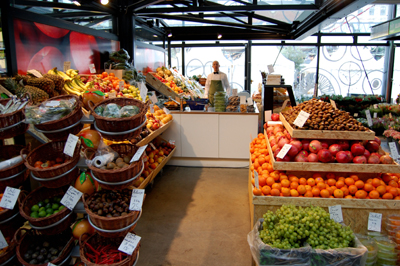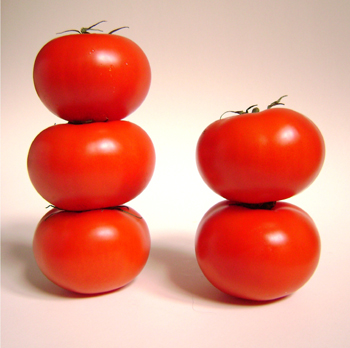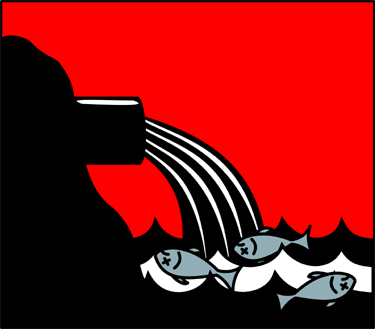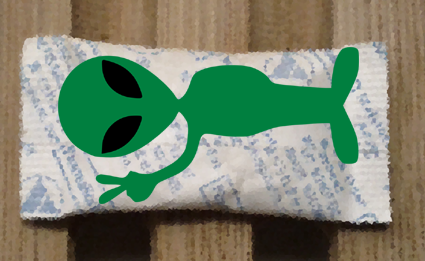Our Food Habit Of Not Asking The Right Question
OUR FOOD HABIT OF NOT ASKING THE RIGHT QUESTION (ISSUE 151) OCTOBER 21, 2014
By Diane Gold
Our food habit of not asking questions is pretty common. We believe our grocers would never lead us astray, that they know more than they do about the foods they supply.
Prior to the year 2000, we were not taught to take responsibility for our foods. We were taught to budget enough for a meat-and-dairy-oriented pyramid of food that recommended too much protein, not from healthy sources, not enough plant-based phytonutrients and not enough raw food.
Schools after the second millennium are, at least, offering programs where students grow food in the school garden or in pots, for lack of land or portability and are conscious of too much fat, sugar and salt.
There are documentaries such as Lunch Hour that reveal how bad meat and dairy food may be offered in school because it is government subsidized. And, to reduce the amount of this type of food would require using school money that was earmarked elsewhere.
Here are a few questions we should have been asking all along and didn’t.
1) WHY IS MY FOOD SHINY AND WHY DIDN’T I KNOW ABOUT IT?
 When we went to buy tomatoes, we never thought about why they were shiny. We just thought they came that way. To this day, most people don’t know that most produce, including that which is certified organic, is sent to the finishing plant after the grower and before the retailer. It gets packaged for resale using lots of different questionably safe plastics. Plus, it often gets a coating that keeps the moisture in that we commonly refer to as vegetable or fruit wax.
When we went to buy tomatoes, we never thought about why they were shiny. We just thought they came that way. To this day, most people don’t know that most produce, including that which is certified organic, is sent to the finishing plant after the grower and before the retailer. It gets packaged for resale using lots of different questionably safe plastics. Plus, it often gets a coating that keeps the moisture in that we commonly refer to as vegetable or fruit wax.
(Then, there’s the paraffin wax that makes candy all sparkly and shiny. Although it’s food grade, so edible, it’s not digestible; it goes in one end and out the other, like produce wax – although some of the chemicals in the produce wax may be absorbed. Don’t we deserve to know which chemical foreign bodies are taking rides through our digestive tract, especially since some may stay in us?)
2) HOW CAN THE FDA ALLOW WAX, ANYWAY?
 The Food and Drug Administration is responsible for the safety of food and drugs. Unfortunately, they are given information by industry giants aka Big Food, that may force them to allow certain chemical processes whose studies were not extensive enough to show the long-term risks. The FDA cares about protecting us from pathogens, like clostridium botulinum. Big Food & Chemical companies show them expensive studies where such and such a product, be it plastic wrapping or modification of the air used in packaging and storing or transporting, are safe for the consumer; the FDA approves this “finishing” process because they have seen the studies. Too bad the studies don’t go far enough.
The Food and Drug Administration is responsible for the safety of food and drugs. Unfortunately, they are given information by industry giants aka Big Food, that may force them to allow certain chemical processes whose studies were not extensive enough to show the long-term risks. The FDA cares about protecting us from pathogens, like clostridium botulinum. Big Food & Chemical companies show them expensive studies where such and such a product, be it plastic wrapping or modification of the air used in packaging and storing or transporting, are safe for the consumer; the FDA approves this “finishing” process because they have seen the studies. Too bad the studies don’t go far enough.
Many of us know that bananas are gassed with ethylene when they are close to market. This allows the grower to harvest the banana before fully ripe and get it to market before it rots. This is a method of MAP, modified atmosphere packaging.
The FDA is swayed by companies with big studies. They are not, however, so quick to rescind regulations when cases of renal failure or accelerated growth of bacteria come to pass.
http://www.fda.gov/Food/FoodScienceResearch/SafePracticesforFoodProcesses/ucm091368.htm
NOTE FROM THE AUTHOR: PIG JUICE ON MY PRODUCE
What both my children and I would find amusing, is that, vegans, of which I am one, work happily but hard at reducing harm to animals by not eating them. The amusing thing, if we see it that way, is that, if we are not investigative and conscientious; the veggies and fruits we use, may have cow, pig, casein and insect emulsion or laminate.
True, there is more control over knowing what wax is used on organic produce; but there is, at least, as much beeswax or lac beetle wax as vegetable grade wax on organics. So, vegans, know thy wax because it is rarely labeled.
3) WHAT’S THAT LITTLE BAG MADE OF?
 We know that in some of our bags, even in the super food bags with my maca or my cacao, there are little bags of alien origin in them to absorb moisture. Why isn’t the contents of this desiccant made known to us? We have heard it’s made of silicon which is supposed to be food safe, according to the current research, but what about the covering? How many sets of fingers have been on that little bag, or how many kinds of oils were on the conveyer belt it rode down?
We know that in some of our bags, even in the super food bags with my maca or my cacao, there are little bags of alien origin in them to absorb moisture. Why isn’t the contents of this desiccant made known to us? We have heard it’s made of silicon which is supposed to be food safe, according to the current research, but what about the covering? How many sets of fingers have been on that little bag, or how many kinds of oils were on the conveyer belt it rode down?
CONCLUSION
This is just one of the many mysteries that are part of our world of food. No one thinks to ask about it. And no manufacturer is going to volunteer to identify the product so as not to scare the consumer.
After all, what we don’t know won’t hurt us, right? Wrong. There are so many new facts that show what we thought were advances of the past 50 years that are showing to be tragic miscalculations on our part: genetically modified seeds, modification of air on produce and chemical mixtures that make up, oh, so many plastics, paints, adhesives and pesticides. The negatives for our health may, sadly, outweigh any benefits we might have thought we received.
Our food habit of not asking the right question prevails. We are asking more, though.
We may be fooled into thinking that the word “natural” has something to do with the word “organic” or the word “vegan” or the words “non-GMO.” And very often, people mistake the word “vegan” for the word “organic.” It is quite common, although not at all surprising, when I ask a grocer, by phone or in person, about a product and hear,
“Oh, this must be vegan because it says ‘all natural,'”
or
“It’s ‘certified organic,’ so it must be ‘vegan.’
Even though candles are not food, we use a food to make them. I wanted to include the following comment which refers to this food.
“These soy wax candles are so lovely; they must be good for the environment.”
Unfortunately, the major manufacturers of soy wax for candles (in the United States) are made from genetically modified soybeans.
ACTION STEPS
1) NOTICE THE CHEMICALS you are eating.
2) LOOK FOR THE FOLLOWING LABELS which conscious people are beginning to request:
eco friendly, gluten-free, cruelty free, organic, paraben-free, vegan, vegetarian, fair trade, kosher, halal, chemical-free, hexane free, B corporation, bpa-free, non-GMO.
3) NOTICE WHICH SUPPLIERS ARE BEING TRANSPARENT through labeling and are beginning to realize consumers have the right to know what’s in our food, even if our food habit of not asking the right question prevails.
4) NOTICE THE TERMS “CRUELTY FREE” or “GRASS FED.” It’s great when animals are treated with kindness or without testing and with free grazing before slaughter. But slaughter is cruel and companies that slaughter are not “cruelty free.”
5) BE CONSCIOUS OF YOUR FOOD AND ITS PACKAGING.
Co-Create
In the end, the more we ask, the more we get to know. The more we teach, the more we learn. The more we team, the more we co-create. Let’s be conscientious about asking the right question so we can care for our health and our planet and our species.
![]()
If you wish to share your story, please hit reply in your email program to be contacted.
If you need habit help, go to http://warriorsofweight.com/warriorsofweight-consulting.
![]()
FEEDBACK
We value your feedback very much.
Please leave a comment.
Please LIKE us on the website
and on Facebook.
You can also follow us on Twitter @warriorsoweight.
Thanks.
![]()
DIANE GOLD, PUBLISHER AND AUTHOR
Diane Gold, Founder of Warriors of Weight, Turning Habits Into Health, is a mentor in tai chi, kung fu and meditation, a music, fitness and stress expert, dedicated mom, studying plant-based nutrition, peaceful conflict resolution and habit replacement.
She believes we can notice our habits the more we notice ourselves. She says,
“There are so many things that go on in our lives that we do over and over again, and we don’t even question them. They may not be in our best interest. They may not mesh with our own philosophy. Until we investigate and become aware.
“It is up to each of us to take enough time to realize what consumer goods we utilize and where they come from. Do we just buy without thinking about the ethics of the company that makes the product? Do we just eat with no regard for how the food has been grown, packaged, processed?
“Each of us decides the answers to these and our comfort level with each. Some people do not have enough food to consider whether a seed is modified genetically. Others don’t care. And others buy according to their philosophy of not supporting genetic modification because it is unhealthy and impoverishes the poor farmer, in the end.
“Whichever way we think, it is important to be aware of what is going on with our food. It will serve us well.
“Finally, let us all take good care of ourselves because we are so worth it!”
![]()







